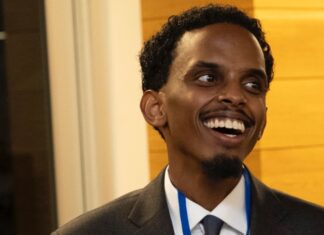Ah, Secretary Alejandro Mayorkas is at it again—this time, going on the offensive against those supposedly spreading “false information” about FEMA’s work during hurricane season. But let’s break this down a little bit, shall we? It seems like every time there’s a question about how resources are being managed, Mayorkas is quick to blame “misinformation.” Sure, he’s worried that some people might be swayed by incorrect claims online, but is that the real issue here, or is it just convenient to blame critics when things get messy?
For starters, Mayorkas is feeling the heat over the handling of Hurricane Helene and the more recent Hurricane Milton. DHS and FEMA have been on the defensive about their response, facing accusations that they’re slow to react, mismanaging funds, and even redirecting resources to help illegal immigrants. Not exactly what you want to hear when people are desperate for aid in the middle of a natural disaster.
The Biden regime is clearly preparing to use phony claims of FEMA “disinformation” as a predicate for internet censorship.
Mayorkas: “We are seeing horrific hate speech of all types propagated on online platforms. That deplorable speech has an impact on people’s lives, and it… pic.twitter.com/lYBgYKjOi1
— Tom Elliott (@tomselliott) October 10, 2024
It’s not just Mayorkas wanting to take away your freedoms. Biden and Kamala agree.
Biden: “Fellow Americans are putting their lives on the line to do dangerous work & receive — some received death penalties yesterday as result of reckless & irresponsible disinformation & lies” pic.twitter.com/p6QtFtE6KQ
— Tom Elliott (@tomselliott) October 10, 2024
Mayorkas himself stirred the pot when he admitted that FEMA “does not have the funds to make it through the season” while also insisting that there was enough for “immediate needs.” If you’re wondering how those two things fit together, you’re not alone. The administration has been pushing Congress for more money, yet somehow, $650 million is being set aside for grants to help illegal immigrants under the Shelter and Services Program. Critics, including former President Trump, are questioning why these funds aren’t going directly to disaster relief. The administration insists these budgets are separate, but the optics are, to put it mildly, not great.
And then there’s the “equity” blueprint that made the rounds online, with its claim that “Diversity, equity, and inclusion cannot be optional.” Sure, it might sound nice in a conference room somewhere, but when you’re dealing with hurricanes and communities that just want to know where their next meal is coming from, it starts to feel a little disconnected. This kind of rhetoric only fuels the perception that the administration’s priorities are more about political correctness than getting the job done.
Mayorkas used FEMA funds intended for Americans on Illegals, and now there’s no money for the victims of Hurricane Helene in North Carolina and elsewhere
If this video doesn’t outrage you, you’re probably a Democrat
THIS IS TREASON… ARREST MAYORKAS
pic.twitter.com/WrcUWVHwl1— harparr #IFBAP (@harparr1) October 4, 2024
Now, let’s pivot to that little exchange Mayorkas had about Nasir Ahmad Tawhedi, the Afghan national accused of plotting an Election Day terror attack on behalf of ISIS. When asked about this at a White House briefing, Mayorkas quickly shut it down, saying he’d address it another time because he was there to talk about hurricane relief. Fair enough, right? Except that it raises a lot of questions about the administration’s transparency and handling of sensitive issues—especially when this involves national security concerns and the vetting of individuals brought to the U.S. under emergency circumstances.
The situation with Tawhedi is particularly eye-opening. He came to the U.S. through humanitarian parole after the chaotic Afghanistan withdrawal in 2021, and despite multiple screenings, he ended up on the radar for alleged ties to ISIS. Officials are now saying he was radicalized after arriving in the U.S. But isn’t this exactly what critics warned about when the administration rushed the evacuation without thorough vetting processes in place?
NEW—Disgraced DHS Secretary Alejandro Mayorkas REFUSES to answer questions on the Afghan national who was arrested for an Election Day terror plot:
“Your persistence in questioning can be matched by my persistence in answers.”
Nasir Ahmad Tawhedi came here in 2021 after Biden’s… pic.twitter.com/ZRyMfV9xIf
— Charlie Kirk (@charliekirk11) October 10, 2024
🔥🚨BREAKING NEWS: It has been confirmed that the Afghan refugee that was charged with plotting massive massacre on US election day worked for CIA.
Nasir Ahmad Tawhedi, 27 entered the U.S. in September 2021 under the Biden / Harris administration, following their deadly and… pic.twitter.com/wTYM4OSwAi
— Dom Lucre | Breaker of Narratives (@dom_lucre) October 10, 2024
Meanwhile, back in Florida, Hurricane Milton has made landfall, leaving destruction in its wake and at least 10 lives lost. More than 200 people died during Hurricane Helene, and it’s clear that the recovery efforts are far from over. Instead of confronting these real issues head-on, Mayorkas seems more focused on calling out “misinformation” and trying to convince people that his department has it all under control.
But as people sift through the administration’s messaging, many can’t help but notice the mixed priorities. Whether it’s the handling of emergency funds, questions about vetting processes, or the diversion of resources, it’s no wonder folks are feeling skeptical. When the administration keeps insisting that it’s all just “disinformation” and “pernicious” rumors, it feels like they’re trying to dodge accountability rather than taking a hard look at why so many people feel the need to ask these questions in the first place.






